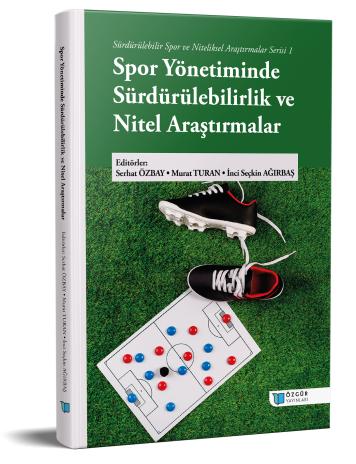
Examining The Effects of Technology Addiction Levels of Vocational School Students on Career Decisions According to Sports and Different Variables (Example of Bayburt University)
Chapter from the book:
Özbay,
S.
&
Turan,
M.
&
Seçkin Ağırbaş,
İ.
(eds.)
2024.
Sustainability and Qualitative Research in Sport Management.
Synopsis
Objective: The aim of this study is to determine the effect of sports and various demographic variables on the technology addictions and career decisions of Vocational School students.
Material and Method: In the study, which was carried out in the general survey model on 426 vocational school students from Bayburt University in the 2022-2023 academic year, in addition to the ‘Personal Information Form’ developed by the research team, the ‘Technology Addiction Scale’ developed by Güçlü (2015) and the ‘Career Decision Scale’ developed by Yusupu (2015) were used. Scale values were analysed with SPSS 26.0 for Windows package programme. As a result of the relevant pre-tests, depending on the number of categories of the independent variable, Independent Student T test was used in paired groups and One-Way Analysis of Variance (ANOVA) and LSD test from Posthoc tests were used in multiple groups. The results were interpreted at .05 significance level.
Findings: In the Career Decision scale, it is seen that females have high scores in the sub-dimension of Conscious Decision Making, males have high scores in the sub-dimensions of Unconscious Decision Making and Environmental Factors, as the family income level of the students decreases, the sub-dimension scores of Unconscious Decision Making and Environmental Factors increase, as the father's education level of the students increases, the sub-dimension scores of Conscious Decision Making decrease. In the sub-dimensions of the career decision scale, it is seen that the mother's education level, the students' regular sports practice, the duration of sports practice, and the purpose of sports practice are not effective factors. In the Technology Dependence scale; it was concluded that males had higher scores in the sub-dimension of impairment in functionality, in the sub-dimensions of the Technology Dependence scale, students' family income level, mother's education level, father's education level, regular sports practice status, sports practice duration, sports practice purposes were not an effective factor; as the technology dependence levels of the students increased, their career decision levels were negatively affected.

